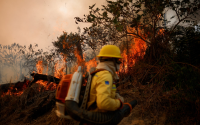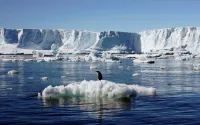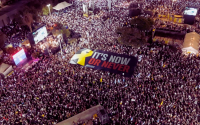Donate onlinewww.concern.net
Leaving for his much trailed trip to Sudan yesterday, the Foreign Secretary Jack Straw said: "I am keen to see for myself the situation on the ground in Darfur."
He will, in fact, spend less than two and a half hours there and only a fraction of that time with the victims of what the United Nations has called "the worst humanitarian disaster in the world".
Mr Straw will be the latest international dignitary to visit Sudan before a 30 August deadline set by the UN for the government to curb the murders, burnings and rapes.
The consensus of opinion among diplomats, observers from the African Union and aid agencies is that violent ethnic cleansing is continuing.
The UN estimates that more than 1.2 million people have been driven from their homes, and 36,000 killed. British officials view this as a "conservative estimate". Nevertheless, it is accepted that Kofi Annan, the UN secretary general will say, with British acquiescence, that there have been signs of progress and the Sudanese government should be given more time.
The prospect of Britain contributing to a force to protect civilians in Darfur, mooted a few weeks ago, is no longer a possibility, and Mr Straw is expected to say so to the Sudanese President, Omar al-Bashir.
Yesterday the Islamist Arab Sudanese government held its first talks since July with the two African rebel movements in Darfur, the Sudan Liberation Army, and Justice and Equality Movement. But the government rejected an offer for African troops to disarm the Arab militia.
Mr Straw is being taken to the Abu Shouk camp, at the town of Al-Fassar, in north Darfur. In terms of deprivation, its 55,000 refugees are better off than many of the thousands of other dispossessed, with a number of international agencies present to provide services.
The Foreign Secretary will not visit Otash and Sefir, two camps with 45,000 people on the outskirts of Nyala, the capital of south Darfur, where babies die of hunger because, until very recently, the Sudanese authorities refused permission for aid agencies to work there.
Mr Straw will also not be going to Kass, where women refugees, many already victims of rapes by the Janjaweed Arab militia, have been subjected to further rapes while supposedly under government protection. In an office in the souk he could have met members of the Janjaweed who had exchanged their white robes for the uniforms of the "Popular Defence Force" and are "protecting" the terrified inmates.
Confining his visit to the northern edge of Darfur, Mr Straw will get no opportunity to see Mirar, a study in ethnic cleansing, where the African half of the population has been driven off, but the Arabs left untouched.
Further south, in Muhajariya, he could have seen how the Janjaweed and government troops had burnt an arc of villages, driving 50,000 refugees into the rebel-held enclave. There he could have met survivors from Silaya, where 100 people were killed, 32 of them burnt alive. The atrocity came weeks after Mr Annan announced that he had reached an agreement with President Bashir on ending the violence.
http://news.independent.co.uk/low_res/story.jsp?story=554532&host=3&dir=69






